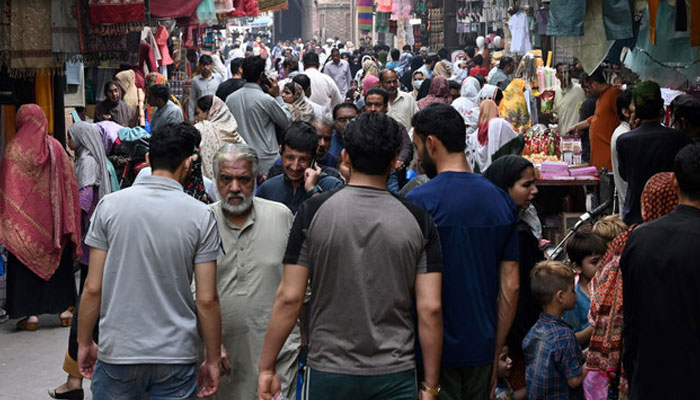Tax the rich, tax them more
LAHORE: In Pakistan, like in many countries, wealth distribution is heavily skewed, with a significant proportion of resources controlled by a small percentage of the population. As seen elsewhere in the world, these super-rich need to be taxed more.
The concentration of wealth is a global issue and is not confined to Pakistan. Regardless of nationality, the world’s ultra-rich are predominantly men, confirming male dominance, and they pay substantially less tax as a share of their income compared to the taxes paid by their employees and other middle-class workers. This situation exacerbates inequality as income distortion worsens.
Global statistics reveal that only 3,000 people have amassed $14.4 trillion in wealth, equivalent to 13 per cent of the world’s GDP. There has been a sharp increase in billionaires’ wealth over the last three decades. In 1993, global billionaires controlled less than 3.0 per cent of the global GDP. The political influence of these billionaires has also increased with their wealth.
In Pakistan, specific percentages of resources controlled by the richest 10 per cent and the poorest 10 per cent are not always readily available, as these figures can vary depending on the methodology and sources used.
However, it is estimated that the top 10 per cent of the population controls a significant portion of the country’s wealth, often upwards of 60-70 per cent of the total wealth. Conversely, the bottom 10 per cent holds a very small fraction of the wealth, sometimes estimated to be less than 1.0 per cent of the total.
At the societal level, the ever-increasing inequalities seem to be of little concern. We tend to respect people based on their wealth status rather than their moral character. What we do not tolerate are religious beliefs or political differences.
The economic deprivation of a large segment of society has contributed to the current deplorable state prevailing in the country.
The 90 per cent of the population contributes 75 per cent of the total taxes collected in Pakistan, while the wealthiest 10 per cent, who control 70 per cent of the total wealth, contribute only 25 per cent of the total taxes collected.
This stark disparity highlights the level of inequality in our taxation system.Our cultural norms seem to accept these growing inequalities, focusing more on wealth status than on moral character. The economic deprivation faced by a significant portion of society has led to the current dire situation.
According to a professor of economics, despite the lack of precise statistics on inequality, rising market power, automation, and globalization have negatively impacted billions of lives.Those affected view their plight as a profound injustice and have lost faith in the political system that has failed them.
Nobel laureate economist Angus Deaton points out that inequality is often conflated with unfairness and should be understood not as a cause of social and political processes, but as a consequence.
-
 SpaceX Launches Another Batch Of Satellites From Cape Canaveral During Late-night Mission On Saturday
SpaceX Launches Another Batch Of Satellites From Cape Canaveral During Late-night Mission On Saturday -
 Princess Beatrice, Eugenie Get Pulled Into Parents’ Epstein Row: ‘At Least Stop Clinging!’
Princess Beatrice, Eugenie Get Pulled Into Parents’ Epstein Row: ‘At Least Stop Clinging!’ -
 Inside Kim Kardashian's Brain Aneurysm Diagnosis
Inside Kim Kardashian's Brain Aneurysm Diagnosis -
 Farmers Turn Down Millions As AI Data Centres Target Rural Land
Farmers Turn Down Millions As AI Data Centres Target Rural Land -
 Trump Announces A Rise In Global Tariffs To 15% In Response To Court Ruling, As Trade Tensions Intensify
Trump Announces A Rise In Global Tariffs To 15% In Response To Court Ruling, As Trade Tensions Intensify -
 Chappell Roan Explains Fame's Effect On Mental Health: 'I Might Quit'
Chappell Roan Explains Fame's Effect On Mental Health: 'I Might Quit' -
 AI Processes Medical Data Faster Than Human Teams, Research Finds
AI Processes Medical Data Faster Than Human Teams, Research Finds -
 Sarah Ferguson’s Friend Exposes How She’s Been Since Andrew Mountbatten-Windsor’s Release
Sarah Ferguson’s Friend Exposes How She’s Been Since Andrew Mountbatten-Windsor’s Release -
 Jelly Roll Explains Living With 'severe Depression'
Jelly Roll Explains Living With 'severe Depression' -
 Charli XCX Applauds Dave Grohl’s 'abstract' Spin On Viral ‘Apple’ Dance
Charli XCX Applauds Dave Grohl’s 'abstract' Spin On Viral ‘Apple’ Dance -
 Anna Sawai Opens Up On Portraying Yoko Ono In Beatles Film Series
Anna Sawai Opens Up On Portraying Yoko Ono In Beatles Film Series -
 Eric Dane's Wife Rebecca Gayheart Shares Family Memories Of Late Actor After ALS Death
Eric Dane's Wife Rebecca Gayheart Shares Family Memories Of Late Actor After ALS Death -
 Palace Wants To ‘draw A Line’ Under Andrew Issue: ‘Tried And Convicted’
Palace Wants To ‘draw A Line’ Under Andrew Issue: ‘Tried And Convicted’ -
 Eric Dane's Girlfriend Janell Shirtcliff Pays Him Emotional Tribute After ALS Death
Eric Dane's Girlfriend Janell Shirtcliff Pays Him Emotional Tribute After ALS Death -
 King Charles Faces ‘stuff Of The Nightmares’ Over Jarring Issue
King Charles Faces ‘stuff Of The Nightmares’ Over Jarring Issue -
 Sarah Ferguson Has ‘no Remorse’ Over Jeffrey Epstein Friendship
Sarah Ferguson Has ‘no Remorse’ Over Jeffrey Epstein Friendship




